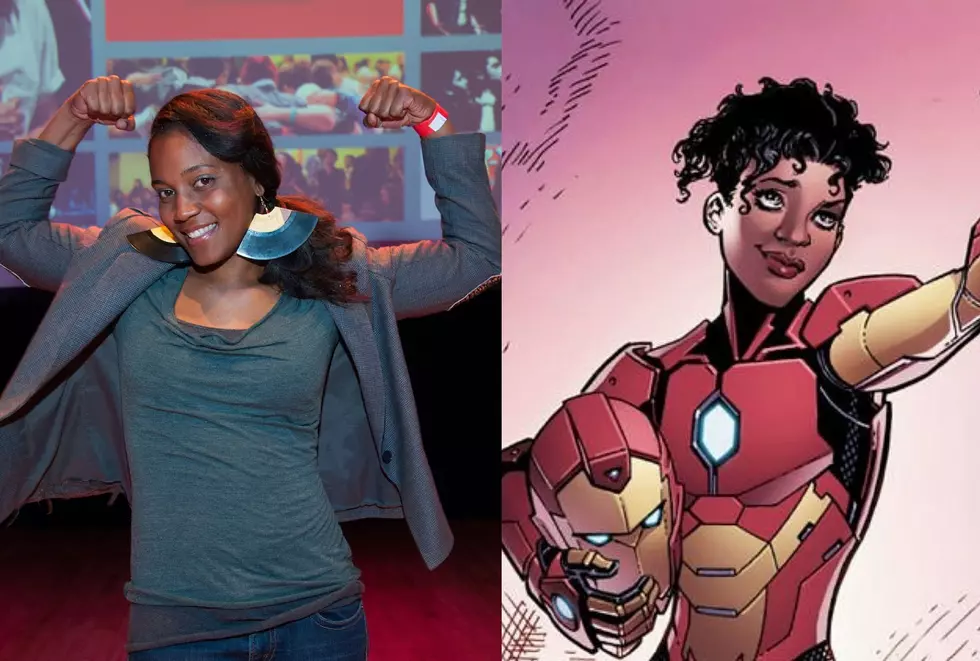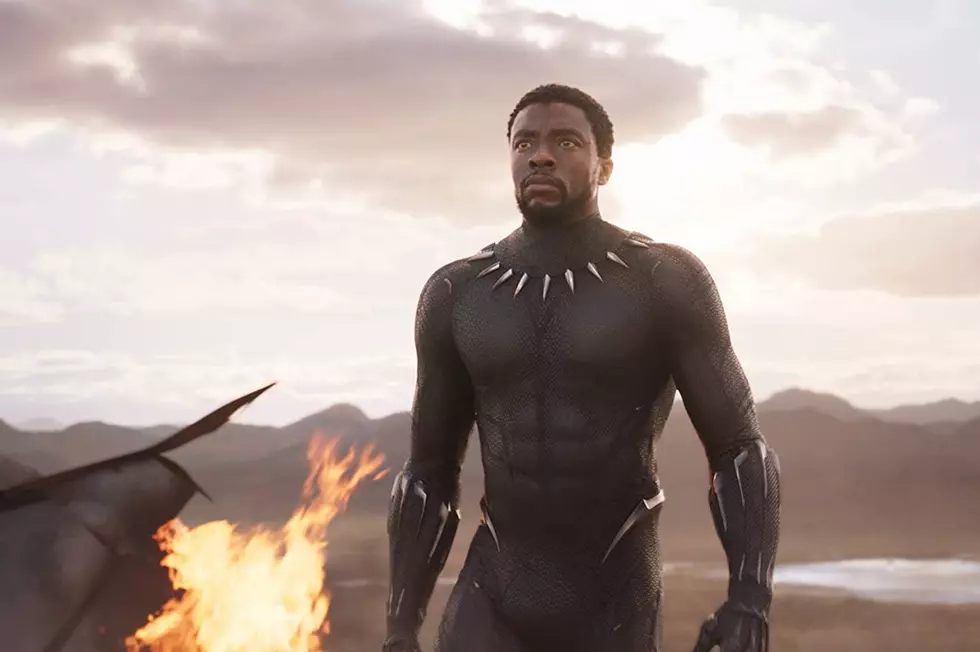
From Black Panther To Moon Girl: A Brief History Of Young Black Brilliance in Superhero Comics
It's been just a few months since Amadeus Cho told nine-year-old Lunella Lafayette that she was "the smartest person in whole world" at the end of Moon Girl and Devil Dinosaur #12. In the time since, Lunella has been condescended to by adult scientists, helped take down the Mole Man's monsters, and teamed up with two other girl geniuses --- the new and unstoppable Wasp, and Ironheart, aka Riri Williams.
The character, brought to life by Brandon Montclare, Amy Reeder, and Natacha Bustos, is tiny, barely hip-height to some of the heroes she interacts with, but she's clearly going big places.
Lunella's brilliance makes her one in a long line of inspiring, super-smart Black characters in comics that can be traced back decades to the Black Panther's first appearance in 1966's Fantastic Four #52, by Jack Kirby and Stan Lee. In that issue, Black Panther T'Challa uses his brilliant mind, his powers from the Panther God, and the technological advancements available in Wakanda to systematically take down the Fantastic Four as part of a test of his abilities.
Sure, for something as old as some of the Civil Rights Movement's greatest achievements, the early Black Panther appearances wouldn't meet many of our modern standards for progressiveness. However, what we do see in Black Panther from the start is the sort of attitude that served as a building block for characters like Lunella.
Prior to T'Challa, not only were there no Black characters in main roles at any of the major comic publishers, but the few that did show up didn't have much in the way of personalities or power.
And then comes T'Challa, who wipes the floor with the Fantastic Four, and who would have gotten away with it if not for their friend Wyatt Wingfoot. Even after that first antagonistic moment between T'Challa and the Fantastic Four, fellow genius Reed Richards is shown to be visibly impressed with the technology that he and his people have created; technology that Reed hadn't dreamed could exist. T'Challa is a billionaire with money and ridiculously expensive tech to spare. Throughout his initial three issue arc in Fantastic Four, he gives the team two separate technologically advanced transportation devices and flies out "the world's best pianist" just to entertain them.
In 1966, that was a huge deal, because of the way popular culture and society as a whole viewed Black people at that time. The 1960s was a time when Black people and Blackness were still a mystery for a majority of people in America. Representation for and of Black Americans was lacking at best --- and offensive at the very worst.
Seeing a character like T'Challa, who was unapologetically Black, a scholar, and so wealthy that he could afford to fling money around just to impress his new friends, in a book that reached a couple hundred thousand people a month was a big step for a company that, prior to T'Challa, had no Black characters in main heroic roles.
The creation of Black Panther of course led to other Black heroes, from Luke Cage and the Falcon to Misty Knight, but it also paved the way for the creation of geniuses whose footsteps Lunella and other young, Black super geniuses would follow in.
1976 saw DC Comics' creation of scientist Karen Beecher, the brainchild of Bob Rozakis; a character who would fight alongside the Teen Titans as Bumblebee before entering semi-retirement to work at S.T.A.R. Labs. Most recently, the science-minded genius has appeared in Young Justice, Teen Titans Go, and DC Super Hero Girls, bringing her brand of bubbly, tech-focused brilliance to new audiences --- audiences made up of little Black kids with big brains.
Another Teen Titan, Cyborg, has made it all the way to the big screen --- or at least he will in this year's Justice League movie, followed by his solo movie in 2020. For a lot of superhero fans, Cyborg remains the standard for Black brilliance because of the original Teen Titans comic and cartoon, where his tech and quick mind saved the day on a regular basis.
Back when many of these characters were created, the idea of a Black character getting their own solo series where they would work in STEM fields and create their own tech while fighting crime was something that many comic creators and fans couldn't wrap their minds around.
But here we are in 2017 with two Black girls --- Lunella and Riri --- ranking at the top of the list of the smartest people in the Marvel Universe, and headlining their own solo comic series where they take on supervillains and schoolwork.
These characters, their books, and the team-ups in which they get to engage with each other and other heroes, exist at a time where there is as great a need as there has ever been to let young Black kids know that nerdery is absolutely something that they can get into, and that they're smart enough and good enough to excel at science.
Black brilliance in fiction is important in a world where, even now, "black genius is snuffed out before it can ever flourish," to quote writer Steven W. Thrasher at the Guardian.
The fact that we can say that T'Challa inspired the creations of characters that led to us having an actual lineage of young Black geniuses, who are being read by Black teenagers and children today, is something that makes characters like Lunella and Riri that much more significant, because we can see that representation does matter.
It's always mattered.
For me, the first Black genius I remember seeing in a superhero series was Max on Batman Beyond. I was nine and fresh off of my Sailor Moon-fueled girl-power spiral. As a kid, seeing Max balance schoolwork, snarky banter with Terry McGinnis, and research skills that could put Sherlock Holmes to shame was mind-blowing. She was smart, snarky, and incredibly brave for someone without any actual super powers. I wanted to be her friend, but I also wanted to be just like her.
For many young Black superhero fans, Lunella Lafayette and Riri Williams serve that same purpose. They're as inspirational and relatable to this current generation of young Black fans as Bruce Wayne or Tony Stark have been for mainstream nerds for years. They appeal and inspire in the same way that Miles Morales and Cyborg appealed to young Black nerds who couldn't entirely identify with brilliant characters that come along practically dripping with wealth and white privilege.
Let's get more young, Black brilliance both on the pages of these superhero comics, and behind the scenes creating them.
12 Black Panther Facts You May Not Know
More From ComicsAlliance









